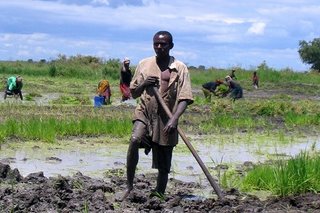
Most western countries believe that the needs of the people of Africa are enormous and urgent, and at the same time they acknowledge that it is a moral outrage that they cannot meet them, even in the most basic ways.
There is need to change certain parameters if this aid is to be of any assistance to African countries. From the donor’s side there should be a clear objective of the particular aid and the objective should be precise.
All evidence on past performance suggest that aid flows are not what make the difference between successful developing countries and those which are not very successful. Aid can facilitate development and it has never done more than that.
At present Africa is beset by internal turmoil. It is divided and in debt. Its political leaders are in ideological crisis, not knowing in what direction to lead their people.
The Recent Past
After over a decade the poor are worse off than ever. School enrollment has dropped, real wages have fallen, deaths from preventable illnesses have risen. The number of poor in Sub-Saharan Africa increased from 184 million in 1985 to 216 million in 1990.
The collapse of the Soviet-style Communism obscures a deep crisis facing Western powers. Other forces are emerging to challenge them. One is fundamentalism. The West had a clear answer to Soviet communism, but has no answer to Islamic fundamentalism where the issues go beyond the development paradigm. Against Islamic fundamentalism, the West offers its own forms of Christian fundamentalism, but that only worsens the contradictions. Fundamentalism of all kinds is thus one new emerging force.
Another force is China, and other Asian powers. By the year 2020, China's economy is projected to be 140 per cent larger than that of the United States, and the economies of Japan, India and Indonesia will be among the world's five largest. Clearly, the balance of economic power is shifting from the Atlantic to the Pacific.
A third force is the increasing awareness in the West of its own shortcomings and vulnerabilities. This gives rise to a sense of insularity and insecurity. The Cold War eclipsed these for a time. Now they are fully exposed. Among the vulnerabilities are the increasing lack of public control over speculative financial flows, the phenomenon of "jobless growth", the rise of permanent unemployment and mounting burdens on welfare services. Compounding crises at economic and social levels are crises at ideological and cultural levels. The very values of "modernization" are under question. Challenges from, among others, the feminist and ecological movements are not just reformist challenges, but "systemic" ones, going to the very core of Western self-assurance.
Western agents want to retain their powers (over nuclear weapons, markets and resources) and sell ideas of democracy and human rights. But the West sees enemies everywhere, particularly the poor. Thus it wants to “ghetto-ise” itself in the citadels of its cities. It erects immigration barriers against hordes of people of color knocking at its gates. The result is increasing polarization between the white Christian, Judaic Western nations and the rest of the world. A kind of "global apartheid" has emerged.
The foregoing provides the context for assessing the role Western private aid agencies will play in Africa. There are exceptions, of course, but in general the private aid agencies are the advanced guard of the new era of Africa's re-colonization. They are the missionaries of the new era. Just as in the colonial era the missionaries neutralized the ideological defenses of colonized peoples and this prepared the ground for colonial occupation, so now the Western agencies play this role in the new era.
During the slave period there were in the West voices opposed to slavery. During the colonial period there were those who opposed colonialism. And today there are voices in the West who condemn the free-market system of development. But these are minority voices. The main thrust of Western civil society is to preserve their own lifestyle and civilization against the danger of encroachments from the South.
Some of the truths in the critique of "aid" are worth recalling here. Against the massive flow of resources leaving Africa, aid is only a trickle. Aid is directed primarily to serve Western, not African interests, as illustrated by the political aims behind US policy to put Israel and Egypt at the top of the list of its aid recipients. European aid has gone to the Lomé Convention countries mainly to sustain a neo-colonial linkage.
In this context what role have private aid agencies played? Essentially there have been four kinds of roles: diversionary, ideological, pacification and destructive of African institutions.
At a guess, between a quarter and a third of private aid agency money has gone into programmes such as population control and micro-enterprise support. These are diversionary in effect, and probably in intent. They draw attention away from the real causes of Africa's poverty. Neither population growth nor lack of enterprise are basic causes of Africa's poverty.
The ideological roles involve professing claims of universality for Western values of democracy, human rights, feminism and environmentalism. Private aid agencies promoting imported versions of these concepts have so thoroughly brainwashed a section of the middle class (living as they do, on lavish donor funds and international conferencing) that there are now signs of reaction against them. Slowly emerging is a return to African culture and traditions. These are seen as the place to begin. A return to the roots is also the place from which to challenge iniquitous and dangerous shortcomings of some of those traditions, as well as to avoid wholesale import of the West's ideological ragbag.
Pacification of people suffering from the effects of structural adjustment programs is another role. This absorbs between a quarter and a third of private agency funds. Besides being diversionary, they tend to legitimize structural adjustment measures and World Bank/IMF strategies. Of course, these fail. The problem is much larger than their petty donations can solve.
The fourth role is that of destroying African institutions - of education, traditional agriculture, traditional healing and health practices and governance.
In his book "Mozambique: Who Calls the Shots?”, Joe Hanlon has documented how private aid agencies systematically undermine the ability of the government to play its legitimate role of governing the country. Similar examples litter the African continent.
It is important to reiterate that there are exceptions to the general picture just painted. Nevertheless, the African grassroots and radical critique of the imperial project has been subverted by most private aid agencies. Faced by crises at home and the emerging new forces - notably Islam and China - the agencies' roles would be to help their governments and civil societies contain these new forces.
Now within the Western neoliberal tradition it is acceptable for a non-governmental organization to take a position ostensibly opposed to its government. Thus, a number of activist NGOs and private aid agencies helped the struggle against apartheid even as their governments supported it. But this is all part of a larger scheme of containing change within controllable parameters. In South Africa, it was the combined efforts of private aid and its governmental backers that managed to neutralize the more radical and revolutionary actors in that country's liberalization.
The language of "empowerment", "participatory development" and "decentralized cooperation" are all part of the ideological baggage of private aid agencies to manage change in Africa. African poverty will remain big on the agency agenda in the years to come. Poverty will become a commodity to nurture the missionary and humanist pretext for intervention in Africa. With it will come all the Western ideological ragbag of democracy, human rights, feminism, secularism, efficiency, empowerment, participatory development, green development, accountability and so on.
Only NGOs that can field programs rooted in African culture and civilization and are independent of donors who dictate their aims, will strengthen African civil society and move it in a progressive direction.

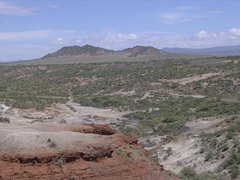





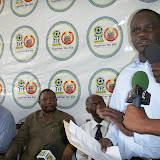
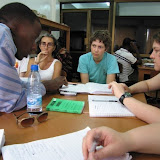
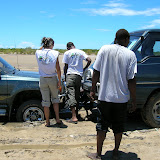


No comments:
Post a Comment